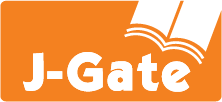 | |
| Producer | Informatics India Ltd (India) |
|---|---|
| History | 2001 |
| Languages | English |
| Access | |
| Cost | Annual Subscription |
| Coverage | |
| Disciplines | Multidisciplinary |
| Record depth | Index, abstract, full-text, author, topic title and subject keywords |
| Format coverage | Journals |
| No. of records | More than 71 million articles and 58 thousand journals |
| Update frequency | Daily |
| Links | |
| Website | jgateplus |
J-Gate is a bibliographic database to access global e-journal literature. [1] As a discovery platform for the research community, [2] it is presented as a website under subscription-based access to a large database of scientific research. [3] [4] It contains abstracts, citations, full-text access for all Open Access journals and other key details from academic journals by covering 71 million+ Indexed articles, 58,000+ journals from over 16,000 publishers. [5] It gives two types of quality measure for each title; those are H-index and SJR (SCImago Journal Rank).